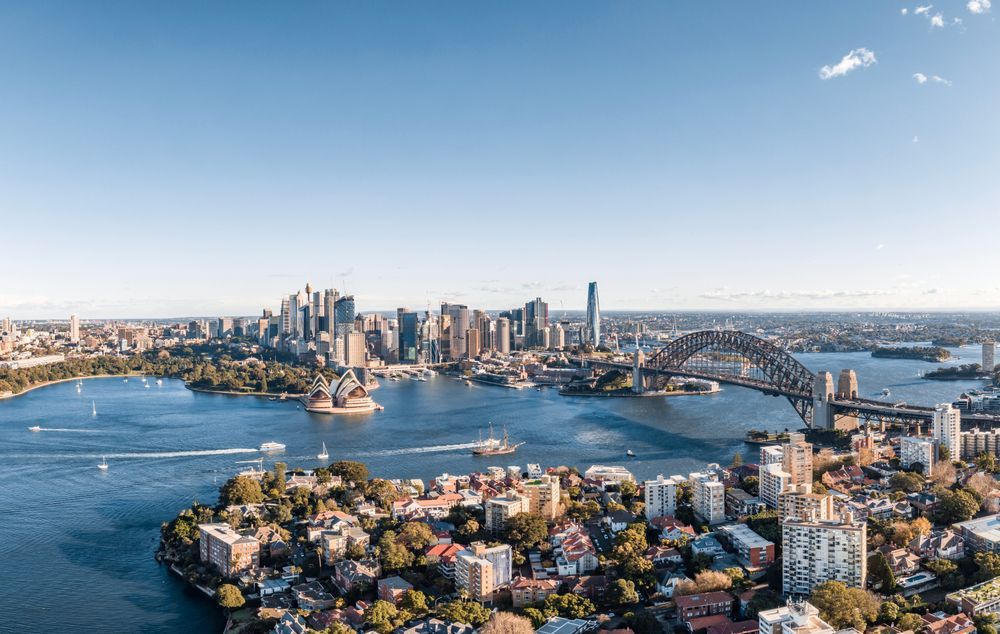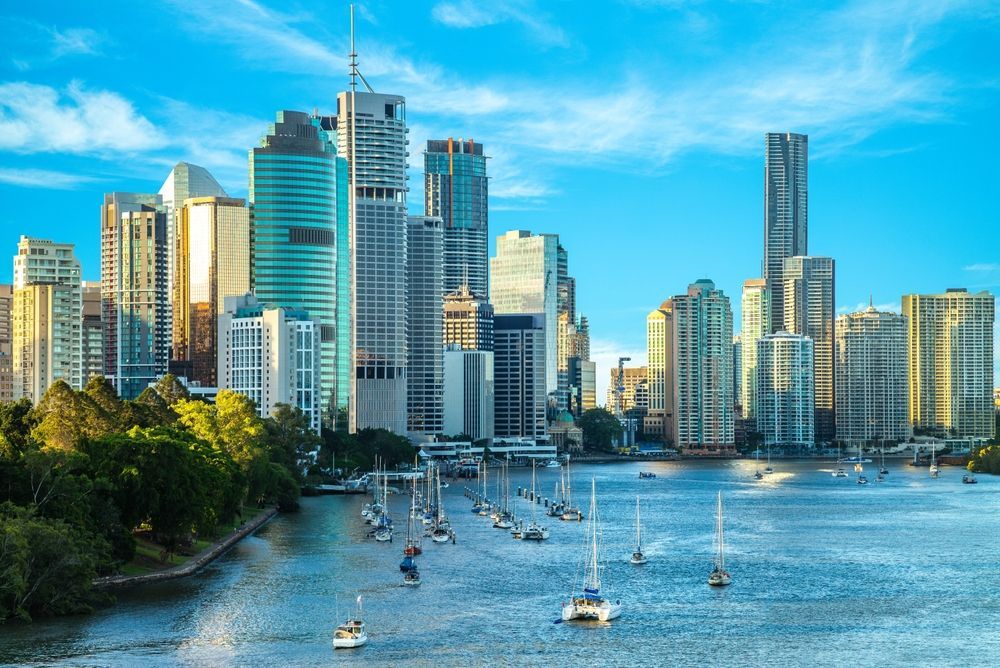Vision2030 Saudi Arabia | Healthcare Projects
An Ambitious Vision For An Ambitious Nation,
Healthcare Transformation Projects of Vision 2030
This article summarises the major projects.
Vision 2030 is the name of the visionary plan for the Kingdom of Saudi Arabia to harness its full economic potential and achieve its ambitions. It was launched under the leadership of the Custodian of the Two Holy Mosques, a roadmap drawn up by His Royal Highness the Crown Prince, to draw upon the intrinsic strengths of the nation, its strategic position, investment power and place at the centre of Arab and Islamic worlds and use them to realise 96 strategic objectives via 11 transformation programmes under the three pillars or visual realisation programmes: An Ambitious Nation, A Thriving Economy, A Vibrant Society.
Since the launch of the vision, the Saudi Arabian government has built a foundation and made unprecedented and far reaching reforms to the public sector’s operating model, the economy and society as a whole. This laid the foundations of success for the future. There were many challenges along the way and a myriad of experiences gained, but major goals were achieved on improving the effectiveness and response of the government, unlocking opportunities for growth and investment, opening Saudi Arabia to the world, launching platforms for future growth, and increasing citizens’ quality of life.
Vision 2030 Draws on The Nation’s Intrinsic Strengths
- 01 The heart of the Arab and Islamic worlds as the land of the Two Holy Mosques
- 02 Investment power to create a more diverse and sustainable economy
- 03 Strategic location to drive international trade and to connect three continents: Africa, Asia and Europe
Vision 2030 The Healthcare Transformation Project
Firmly established in Vision 2030, the healthcare transformation project was launched in 2022 with four major strategic objectives:
- Facilitate access to healthcare services
- Improve the quality and efficiency of health services
- Improve public health and disease prevention
- Enhance Traffic Safety
The Goals
- Increase private sector share of spending through alternative financing methods and service providers;
- Increase the efficient utilisation of available resources;
- Improve the efficiency and effectiveness of the healthcare sector through the use of information technology and digital transformation;
- Increase training and development both locally and internationally;
- Increase the attractiveness of nursing and medical support staff as a preferred career path;
- Improve healthcare provision before hospitalisation and in the main hospitals (ER & ICU);
- Improve integration and continuity in service provision by developing the primary care;
- Improve the infrastructure, facility management and safety standards in healthcare facilities;
- Attain acceptable waiting times across all stages of service delivery;
- Improve governance in the health system in order to enhance accountability with regards to quality issues and patient safety;
- Adopt a national plan for emergency response to public threats in line with international standards;
- Identify additional sources of revenues;
- Improve public health services with focus on obesity and smoking;
- Improve the quality of life and healthcare service provided to patients outside hospitals;
- Improve quality and safety principles as well as skills of service providers.
- Ensure sufficient supply of basic medicines.
The program aims to restructure the health sector in the Kingdom to be a comprehensive, effective and integrated health system that is based on the health of the individual and society (including the citizen, the resident and the visitor). The program depends on the principle of value-based care, which ensures transparency and financial sustainability by promoting public health and preventing diseases, in addition to applying the new model of care related to disease prevention.
It's implementation delayed by the covid19 pandemic which tested the country's resources and refocused them on the crisis, the plan has now been relaunched with lessons learned and experience gained with the expanded use of digital technologies that the effective response to the crisis demanded. The Health Transformation Program will now work on enabling comprehensive transformation in the sector and restructuring it into an effective and integrated system with more optimal coverage and equitable geographical distribution.
One key goal of the plan is the digitization of the health sector and already two software applications have been launched via the Ministry of Health to enhance public access to health information and services.
Sehhaty Application: aims to enable users to reach health information and medical e-services provided by different health organizations in the Kingdom, including vital signs updates, tracking prescribed medicine, retrieving and sharing sick leaves and promoting a healthy lifestyle. It can also be integrated with the Apple HealthKit and other services.
Mawid: an application provided by the Ministry of Health to enable patients and beneficiaries to book, cancel or reschedule their appointments at primary health care centres, as well as managing their referral appointments.
Two recently launched programmes are concerned with genetic diseases and ageing. Backed by billions of dollars, they plan to study the use of genomic technologies and artificial intelligence to eliminate or minimise the effects of genetic disorders and increase longevity and well being with research into ageing.
The Saudi Genome Project
The Saudi Genome Program (SGP), inaugurated by His Royal Highness, Crown Prince Mohammed bin Salman bin Abdulaziz, is one of the frontier national projects under Vision 2030, aiming to reduce the incidence of genetic diseases using advanced genomic technologies.
The Saudi Genome Program (SGP) is creating a database to document the first genetic map of the Saudi society, which can then be subjected to analysis by artificial intelligence tools to develop more effective diagnosis, therapy and prevention, personalized medicine practice, premarital and newborn screening, cancer screening and targeted therapy.
The benefits sought are better management of other multifactorial genetic diseases such as diabetes, reduced healthcare costs and improved quality of life.
The Hevolution Foundation
Anyone who has more money than they know what to do with eventually tries to cure aging. The Saudi royal family has started a not-for-profit organization called the Hevolution Foundation that plans to spend up to $1 billion a year of its oil wealth supporting basic research on the biology of aging and finding ways to extend the number of years people live in good health, a concept known as "health span."
It is a first of its kind, a non-profit organization that provides grants and early-stage investments to incentivise independent research and entrepreneurship in the emerging field of health span science. Headquartered in Riyadh, with hubs planned in North America, Europe and Asia, the Foundation has developed a set of key goals and targets to support its Vision & Mission.
The idea, popular among some longevity scientists, is that if you can slow the body's aging process, you can delay the onset of multiple diseases and extend the healthy years people are able to enjoy as they grow older. The fund is going to give grants for basic scientific research on what causes aging, just as others have done, but it also plans to go a step further by supporting drug studies, including trials of "treatments that are patent expired or never got commercialized."
The fund is authorized to spend up to $1 billion per year indefinitely, and will be able to take financial stakes in biotech companies. By comparison, the division of the US National Institute on Aging that supports basic research on the biology of aging spends about $325 million a year. Hevolution has not announced what projects it will back, but people familiar with the group say it looked at funding a $100 million X Prize for age reversal technology and has reached a preliminary agreement to fund the TAME trial, a test of the diabetes drug metformin in several thousand elderly people.
Hevolution Vision: To extend healthy lifespan for the benefit of all humanity
Hevolution Mission: To drive efforts to extend healthy human lifespan and understand the processes of aging, leveraging a broad set of tools through diverse approaches.
Hevolution Goals:
- Increase the number of safe and effective treatments entering the market
- Compress the timeline of drug development, using the latest tools and technologies
- Increase accessibility to therapeutics that extend healthy lifespan
- Increase the number of longevity researchers globally
- Expand the number of companies working in the field
- Attract funding to the field of aging
Vision 2030: Opportunities for the Foreign Investor
Vision 2030 offers many opportunities in healthcare for the foreign investor in key areas which can be identified in the NTP as follows:
- Additional private medical facilities;
- Increased medical insurance;
- Increased use of information technology;
- Healthcare Education;
- Provision of improved training facilities;
- Enhanced professional development;
- Local manufacture of pharmaceuticals.
Additional private medical facilities
Foreigners are able to own and manage hospitals in Saudi Arabia but are unable to own or manage other healthcare institutions. It is envisaged that foreign participation and investment in new hospitals will take place through public-private partnerships and joint ventures with Saudi owned entities.
Increased medical insurance
Medical insurance is already compulsory for expatriates and Saudi nationals (and their dependents) working within the private sector. Citizens working within the public sector currently receive free coverage in government health care centres and public hospitals. It is not known at this stage how medical insurance will develop however as more public services are privatised and public-private partnerships are entered into the provision of healthcare will naturally transfer to the private sector. In anticipation of this, we understand that current medical insurance providers are developing products that cater for public sector employees to meet future requirements.
Increased use of information technology
Digital healthcare innovations are key for supporting Vision 2030 as the Ministry of Health is aiming for Saudi citizens to have unified digital records. In addition information technology solutions will improve the performance and productivity of healthcare providers and will enable a better quality of service to be provided. Software that assists with the treatment of medical issues such as the diagnostic process is considered a medical device whereas other software used with the healthcare sector is not.
Healthcare Education & Provision of improved training facilities
The NTP places a great deal of emphasis on healthcare education and training. There is a recognised need for qualified Saudi healthcare practitioners and support staff as healthcare requirements increase and currently the sector is mostly supported by expatriate workers. The increased education and training needs will be catered for domestically and internationally potentially with links to world renowned institutions and public-private partnerships. Furthermore, this increased need could also be catered for through management and operational arrangements with internationally recognised service providers.
Local manufacture of pharmaceuticals
Saudi Arabia is mostly dependent on imports for its pharmaceutical requirements and there is a desired need for pharmaceuticals to be manufactured locally to ensure an adequate supply of medicines. Foreign pharmaceutical manufacturers are being actively encouraged to establish plants in Saudi Arabia through public-private partnerships and joint ventures with national entities. Incentives are being offered in the form of preferential treatment in future volume tenders. As an additional incentive, foreign owned manufacturers within Saudi Arabia are able to distribute and sell pharmaceuticals within the country whereas all imported pharmaceuticals can only be distributed through a Saudi distributor.
The SAGIA website lists the manufacture of medical devices and equipment as an investment opportunity for foreign investors. Currently the majority of medical devices and equipment are manufactured abroad and are imported into the country. The Ministry of Health is supporting local manufactures by partnering multinationals with Saudi companies with the incentive of guaranteed volumes for Ministry of Health purchases and preferential treatment in future volume tenders. Furthermore, foreign owned manufacturers within Saudi Arabia have the additional benefit of being able to distribute and sell medical devices within the country without the need of a local distributor
Conclusion
The potential effect of Vision 2030 is far reaching and if achieved will bring enormous benefit to the economy of Saudi Arabia. There is a huge possibility for foreign investment albeit in limited areas. It is clear that foreign investment is being guided in a carefully controlled direction with activities such as the distribution of imported pharmaceuticals and medical devices being reserved for Saudi entities and citizens. Furthermore, most healthcare institutions will remain within the ownership and control of Saudis. All foreign investors must have something to offer the country and must demonstrate a commitment to assisting Saudi Arabia in reaching the goals laid down in Vision 2030. For the investors willing to do so the possibilities are endless.
Read about working in Saudi Arabia in our Saudi Arabia country profile.
Candidates who wish to work in Saudi Arabia are encouraged to register a CV and contact us to discuss options. Guidance on obtaining a dataflow report and licence to practice medicine are covered in the linked articles.
CV drafting for the Saudi medical market is covered in this article.
22 July 2022
Share this post on Social Media
Leave a Comment
SEARCH JOBS
Ready for a change? Whether you’re looking for higher compensation, greater autonomy, a better work-life balance, or just a change in scenery, we have job opportunities in wonderful locations across the world. Start your medical or dental job search today and embark on your next career move.
SIGN UP FOR JOB ALERTS
We believe everyone deserves to find their dream job. Be the first to hear about new practice opportunities in exciting locations across the world Simply sign up for job alerts in your chosen field, and we will email you when a new job in your specialty becomes available.


















